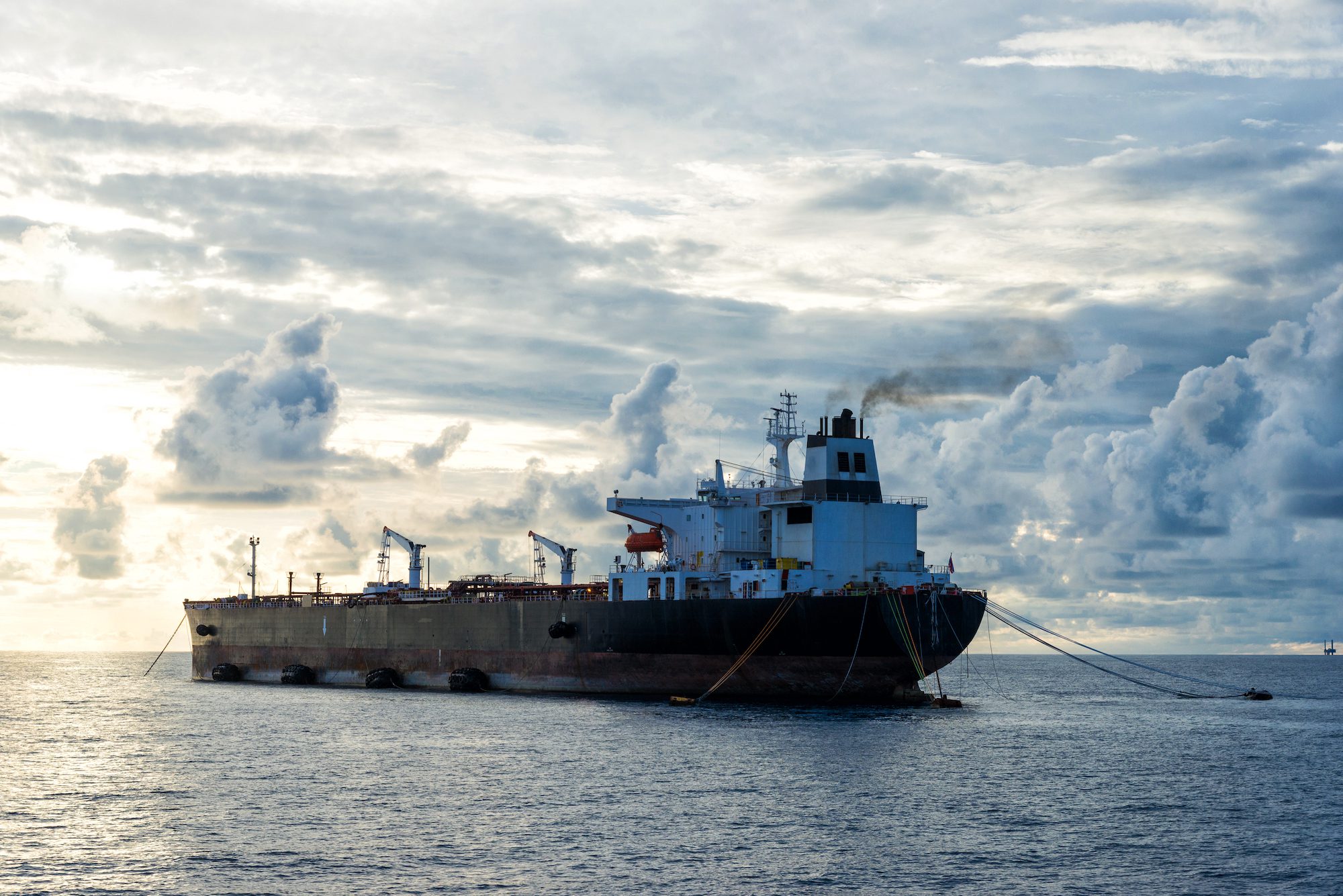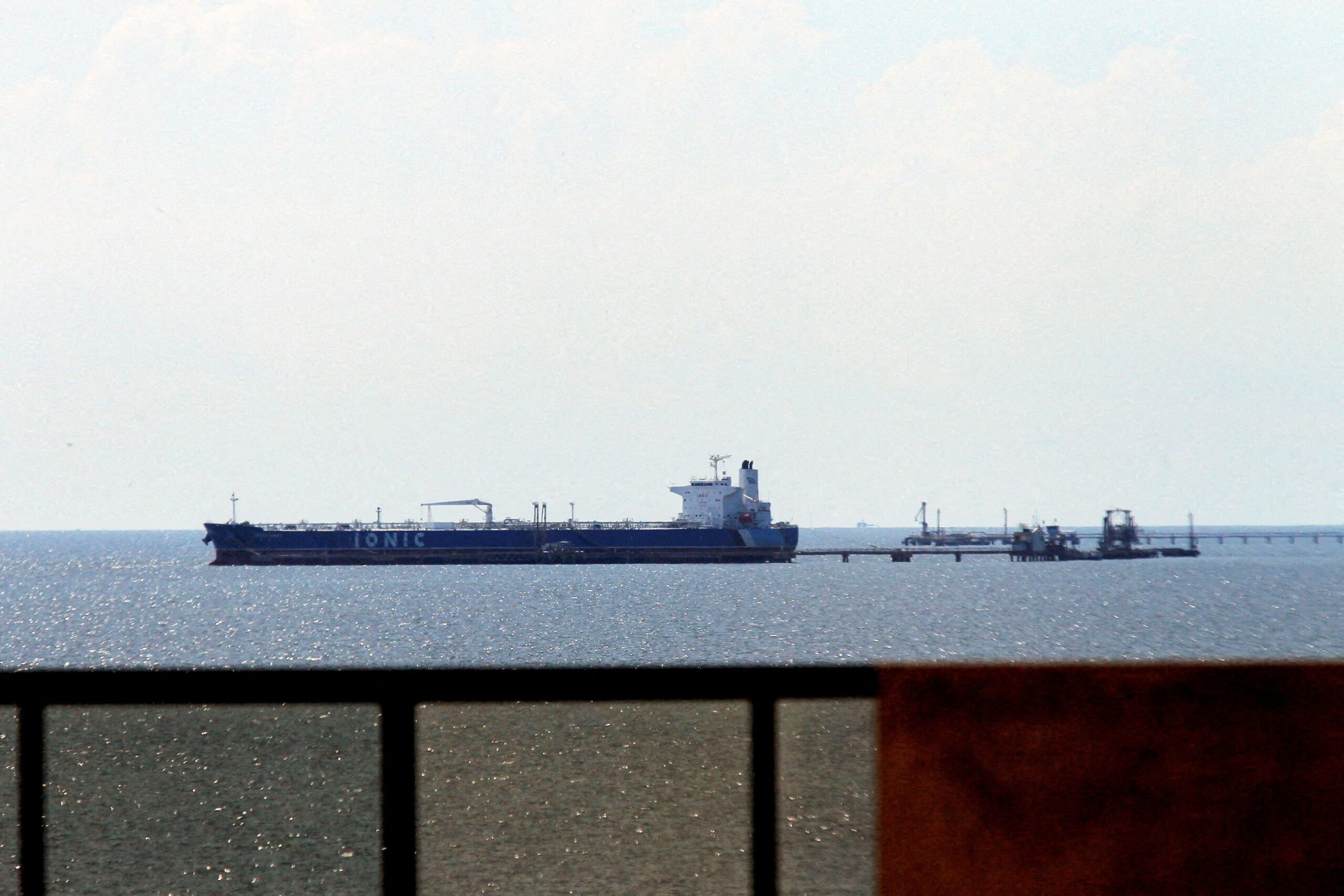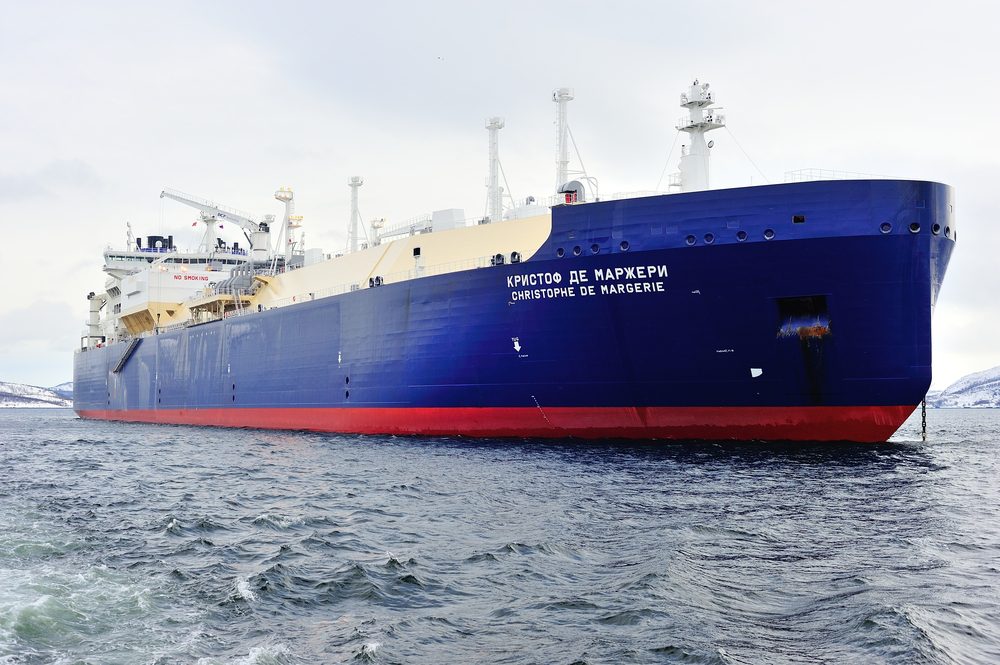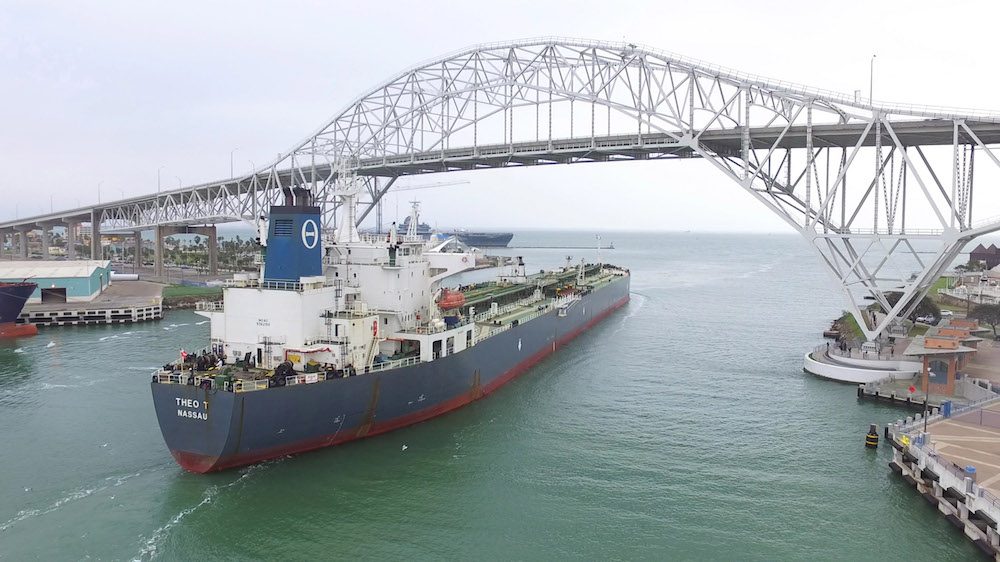By Ewa Krukowska, Alberto Nardelli and Sanne Wass (Bloomberg) —
Twelve European countries are set to clamp down on tankers that move millions of barrels of Russian petroleum around the world — by asking to see how they’re protected against oil spills and other high-cost claims.
Nations including Denmark, Estonia, Norway and Sweden are to introduce checks on insurance policies of passing Russian tankers. The initiative was confirmed Monday at the JEF Leaders’ Summit in Tallinn, Denmark. There has long been speculation that some vessels moving Russian oil and fuel are either uninsured or under-insured against risks including cargo spills, heightening environmental concerns. This may help to bring some clarity to the situation.
The involvement of Copenhagen is important because the Danish shipping straits are a critical trade artery through which Russian oil has flowed largely unrestrained since the start of the war in Ukraine. The value of the crude oil and fuels passing through this year is about $60 billion, vessel tracking data compiled by Bloomberg and prices from Argus Media show. That equates to roughly 40% of the total amount of Russia’s seaborne petroleum exports flows.
The 12 countries supporting the move are Denmark, Estonia, Finland, Lithuania, the Netherlands, Norway, Poland, Sweden and the UK, according to a person familiar with the plan. Governments in some countries will task their maritime authorities to request relevant proof of insurance from suspected shadow fleet vessels passing the English Channel, the Danish straits, the sound between Denmark and Sweden, as well as the Gulf of Finland.
The move coincides with a widening of the EU’s sanctions net on tankers moving Russian oil around the world. The bloc designated dozens more oil carriers on Monday, having previously listed 17.
Shadow Fleet
The insurance checks are being imposed to deter a so-called shadow fleet that’s being used to get around a price cap on Russian oil imposed by the Group of Seven industrialized nations to limit Moscow’s access to petrodollars. The new initiative by countries including the Nordic-Baltic Eight group is mostly about transparency and gathering data, the people said.
There are no automatic or immediate consequences expected on vessels found to be falling short with their cover. There also won’t be any immediate punishment for ships that don’t cooperate with requests for proof of insurance. More tangible actions leaning on the initial information that’s collected could follow in future, some of the people said.
Copenhagen has so far been cautious about taking steps that might disrupt the flow of Russian petroleum through the Danish straits when western nations were ramping up sanctions on the trade. The election of Donald Trump into the White House adds another layer of uncertainty about wide-ranging western sanctions on Moscow’s energy industry and trade.
A centuries’ old freedom-of-navigation treaty that means it would be hard to do anything that halts vessels. The pact prevents Denmark from demanding that ships provide insurance information, and vessels can refuse such requests. If passing tankers do decline to cooperate, then that’s just what the authorities will log.
Before the war, the vast majority of insurance to cover a Russian oil-tanker spill was provided by western firms that are part of the International Group of Protection & Indemnity Clubs. They would then buy large amounts of reinsurance to cover themselves against a worst-case spill, insisting that ships follow the highest possible safety standards to keep industry risks as low as possible.
Those firms remain in the trade but have been joined by a growing band of new entrants, particularly Russian companies. The shift in coverage has created uncertainty about how swift and comprehensive payouts might be if something serious were to go wrong.
Danish officials have said that the country’s government is deeply concerned about the “dubious insurances” of ships passing through the straits. The safety of the ships has also been called into question by specialist pilots who guide them through.
The Danish straits handle about half a trillion dollars in trade a year and roughly 7% of the world’s seaborne oil, according to data from Clarkson Research Services Ltd., a unit of the world’s largest shipbroker.
Estonia already began to ask for insurance but — as of July and August — it was only receiving responses from about 40% of the passing fleet, Bloomberg reported in September.
The UK introduced a similar measure to challenge vessels sailing through the English Channel in October, meaning that the major change will be in the Sound between Denmark and Sweden. At the end of last month it said more than 43 ships had been contacted under the scheme, and that one vessel which ignored the requests was sanctioned.
© 2024 Bloomberg L.P.

 Join The Club
Join The Club











